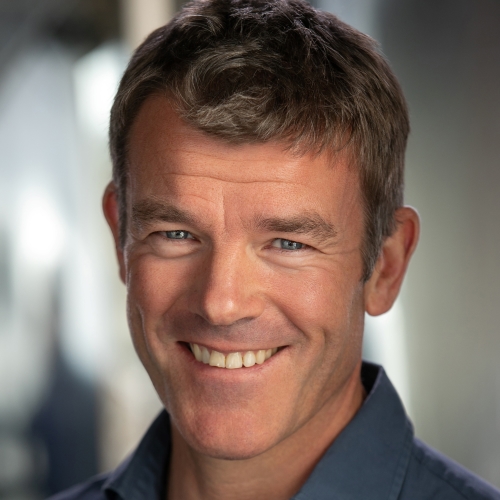Reshaping the Family Business in a Changing World
An Interview with Jonny Wates, Owner of the Wates Group (UK) and Social Impact Entrepreneur
Jonny Wates is a fourth-generation owner of the Wates Group Ltd, a family-owned construction, property services and development company in the United Kingdom. Jonny was appointed to the Wates Group Board in 2008. He chairs the Board Sustainability Committee and champions sustainability at a strategic and an operational level. He is a Trustee of the Wates Family Enterprise Trust, the Wates Foundation, and the William Wates Memorial Trust.
Previously, Jonny was Founder and Chairman of the renewable energy start up Myriad Cleaner Energy Generation, served as Wates Group Head of Strategy and Sales Director of Wates Homes Ltd. He began his career as a Brand Manager at International Distillers & Vintners (now Diageo). He fulfils a variety of leadership roles external to the family business, all of which focus on the theme of sustainability.
Jonny sees sustainability as a key to the long-term resilience of organisations, humanity, and the planet itself. His goal is to ensure that the wider industry recognises the scale of the role it has to play, given increasing urbanisation and the need to reduce the carbon impact of buildings.
Jonny has an MBA from the Cranfield University School of Management and a master’s degree in Sustainability and Leadership from the University of Cambridge.
You just celebrated the 125th Anniversary of the Wates Group – can you tell us about your family business?
We were established in 1897 by my Great Grand-Father Edward Wates. We celebrated our 125th anniversary in 2022. Now in our fourth generation of family ownership, we’re thoughtful about what world class ownership looks like in this day and age. The external context is extremely challenging. We are aware of our responsibilities in relation to that, but also of the opportunity and risks that are arising.
These challenges inform the role the family plays in the enterprise. Our business has grown fast in recent years and has the potential to grow further. How can we best fulfil our role as stewards, whilst adding maximum value through our work? We are evolving our governance structures to enable us to leverage our long-term outlook. We are also consciously developing deeper skills and new approaches to enable us to be more strategic and more effective allocators of capital. We are in effect single stock, single sector and single geography which gives us top marks for focus but not so much for diversification of risk. This is a key driver in the years ahead. It’s an exciting process which will take some time. We have solid alignment amongst the owners. The overall objective is clear – to hand on a stronger company to the fifth generation.
But what is a ‘stronger’ company? We have always believed that there is a powerful correlation between doing the right thing and being financially successful. Today that belief manifests in a commitment to social and environmental as well as economic impact. Our current work focuses on introducing rigour around our commitment. How can we best accelerate our impact across all three themes and how can we capture that?
How did the Wates Group sustainability journey start?
Wates has been on a sustainability journey from the very beginning. Since the business was founded, being responsible owners, being good neighbours were always fundamental values. Our history is full of inspiring examples. Successive generations have been shaped and informed by these examples but also by the behavioural example of our forebears.
So it is not something new, however it was not called sustainability back then. The lexicon has shifted over time and today it is more formalized which is both helpful and necessary. It helps us to track our own progress and it allows us to better communicate with our stakeholders, all of whom are Increasingly interested and demanding. There has been an evolution in terms of what the issue means. It started with doing right because we want to be good citizens, then it also became about compliance and legal as new laws and regulations came forward. And now it is a matter of competitive advantage and, one could argue, fundamental durability, at the heart of our opportunities and risks.
Although it is not mandatory for us a private enterprise, we choose to have the same level of reporting transparency as a listed company. Doing so builds trust. It’s impossible to overstate the importance of that.
What are the main areas of focus/your key priorities for the Wates Group in terms of sustainability?
The external context is challenging. There is a high level of volatility and disruption, caused by a range of system wide issues such as climate change, biodiversity loss, rapid technological advancement, geo-politics, and social justice. We are working to recognise these issues, to prioritise and respond appropriately. That is the duty of any responsible organisation. Not to do so is a risk because all stakeholders can see these systemic challenges more clearly. The board sustainability committee has been formed, in part, to give the board assurance that we are getting these judgments right.
We expect our portfolio of interests to evolve steadily in years ahead, to take advantage of market changes, driven by disruption. How we choose to allocate our capital, over the long run, will materially influence the extent to which we realise our ambition to have positive environmental, social, and economic impact.
At the operational level, sustainability has moved to the centre of strategic planning. It’s right in the heart of the best opportunities and the biggest risks. We have to get our own house in order, with environmental responsibility and social justice. To that end, we have a range of bold public targets for both issues, plus the resource and work programmes to deliver on those targets.
Environmental work focuses on carbon reduction, waste, and nature. But equally on the burgeoning market opportunities, such as renewable energy, low carbon building retrofit and green urban infrastructure. Social value work looks at employee safety (of course) but also holistic well-being, supporting those furthest from the workforce, enabling the social enterprise sector and we have a big emphasis on diversity, equity, and inclusion. There are significant costs associated with this work. We are of the view however that they are essential activities for business today, and they serve to make us more durable and relevant.
Despite this progress, we understand we are at the foundation stage. Our clarity of thought and good intentions need to translate into consistent systems and processes, to ensure change is permanent and effective.
Please tell us about you and your role in the family business
I am a 4th Generation owner of the Family Business and have been working there since I was 28. I have now been with the company for 26 years and held many different roles in sales, strategy, the executive committee, and philanthropy. I led the family into an investment in renewable energy, which we still have. It’s taken time but it’s starting to perform well.
A few years ago, I went ‘back to school’, and completed a Masters in Sustainability Leadership at Cambridge University. This was a formative experience that taught me things I cannot ‘unlearn’. I saw how the family business had to adapt in the face of disruptive forces, for its own sake but also for the sake of the society it serves. Since then, sustainability has been my sole career focus, within and outside the enterprise. As well as championing the agenda internally, I hold a range of leadership positions outside the company, both to increase my personal impact, but also to learn what is happening at the cutting edge of this fast-changing agenda. I consciously try to put myself in positions to learn fast and then try to bring that knowledge back into Wates. This summer I attended and helped deliver the TED Countdown Conference in Detroit. I am an Associate at Leaders’ Quest, who partner with TED on Countdown.
Over time, Leaders Quest have had a great influence on me. Many years ago, I joined a ‘Quest’ experience with them in India. It was a 360-degree group immersion in all aspects of life in Mumbai and Bangalore, and it shifted my view on the world profoundly. I have always sought meaning in my work, and the convergence of such a challenging context and the work at Wates has created a great platform for me.
What about the Next Generation?
The 5th Generation are aged between 6 and 30 years old with a cohort of 18 direct descendants, one of whom is already working in the company. We have a carefully designed programme to engage them all in the Family Business. Only last week those Next Generation family members over the age of 21, joined the 3rd and 4th generation members at our bi-annual family council. The meeting was all the better for their presence.
What about the role of other stakeholders?
The volatile external context is informing stakeholder priorities. As already mentioned, this creates both opportunities, especially with new products and services, as well as challenges as we strive to meet these changing expectations. Our social contract, or licence to operate looks quite different to how it did even five years ago. Societal expectations of business have risen, influenced by growing awareness of the environmental crises and sentiment around social justice. Our own people, as well as potential recruits, are an extension of these shifts. Our credentials are under scrutiny, so we have to not only do the right thing but we have to be effective and transparent in communicating it.
Our customers are also responding to this shift in mood and to the growing swathe of regulation and legislation, particularly in relation to the environment. As we react, so we need support from our supply chain, to meet client expectations.
This is why in Wates we think of sustainability as akin to durability – it is intrinsic to business performance. The family’s declared common cause to hand on a stronger enterprise to the next generation, in large part depends on our ability to transition towards an enterprise that places equal value on environmental and social outcomes as it does financial ones.
Jonny, thank you very much for sharing those insights!




